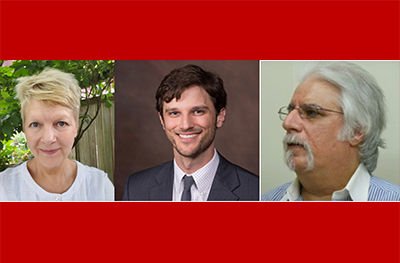
Ask the experts: Afghanistan
As the Taliban asserts authority in Afghanistan and U.S. troops pull out, people around the world are discussing what happened and wondering what it means for their countries and global security. Miami University professors who have studied Afghanistan, the Taliban, and world history are available to share insight into the unfolding situation.
Laura Neack, professor of Political Science
Neack is an expert in foreign policy and international and national security. She can speak to the history and politics of the Afghanistan wars, including the U.S. war there, and U.S. global counterterrorism efforts. She says that it’s important to note that in Afghanistan, there is a tradition of negotiated surrender and that tradition continued with the recent Taliban takeover.
“The official U.S. military position -- that the Afghan forces were capable, committed, and well-commanded -- was based on a fantasy that the Afghan military could be just like the U.S. military sees itself,” Neack said. “That fantasy never matched the reality on the ground, but it was the active myth motivating the US military brass for 20 years.”
She also said that the U.S. counterterrorism strategy over the past decade was to train-and-assist with air and logistical support intended to decrease over time as the local forces and local government become more capable, however, it wasn’t reassessed.
“Local forces that fail to become more capable over time only remain dependent on a U.S. military presence and are likely to fall when forced to stand on their own,” Neack said. “If the local forces cannot operate without the U.S. military, then other options must be explored or we run the risk of establishing a permanent military presence by default.”
Nathan French, associate professor of Comparative Religion
French is an expert on Islamic studies and the contemporary Jihadi-Salafi movement, such as ISIS and al-Qaida. He can speak about the impact of the collapse of Afghanistan on Jihadi-Salafi movements, possible future directions for the Taliban, and general changes in the Taliban's approach over the last 20 years. He can also speak to the events and legacies of September 11, 2001, Islamophobia and concerns about Afghan immigration, and the "Forgotten" war in Afghanistan and the U.S. "War on Terror."
“What the Taliban accomplished over the last week is stunning, but not surprising,” French said. “The narrative of the fall of the Afghan National Government -- particularly this close to 9/11 -- will serve as an instrument of mobilization and inspiration for many jihadist movements. With the usage of social media platforms, the effect on morale will be immediate -- movements are already signalling their praise online for what they argue the Taliban accomplished.”
He said the Taliban is now facing a balance of two things: international recognition and satisfying regional supporters. He noted that a recent visit from China signalled that there may be a Chinese willingness to extend diplomatic recognition, and that Russia has also signalled its aid, depending on the Taliban’s ability to maintain stability.
“The Taliban need this support given what will likely be a skeptical, if not hostile, U.S. and Western European response,” French said. “The Taliban will also need to uphold their local agreements in the face of a significant drought and the possibility of famine. They also face a generation of Afghans who fought for an Afghanistan in which they hoped the Taliban would never again play a part.”
Homayun Sidky, professor of Anthropology
Sidky can discuss why circumstances resulted in a Taliban resurgence and the rebirth of their "Emirate." Previously having worked in the Middle East, Sidky is an ecological anthropologist, with strong interests in the history and theory of anthropology, and the anthropology of religion.
“The rapid Taliban takeover of Afghanistan, the capitulation of the American-trained and equipped Afghan military, and the shameful flight of President Ashraf Ghani have surprised many in the United States and elsewhere,” Sidky said. “But sadly, this was an inevitable outcome due to crucial mistakes made by U.S. political and military strategists working with models of governance and political science state-building paradigms inappropriate for that particular cultural and geopolitical context.”
